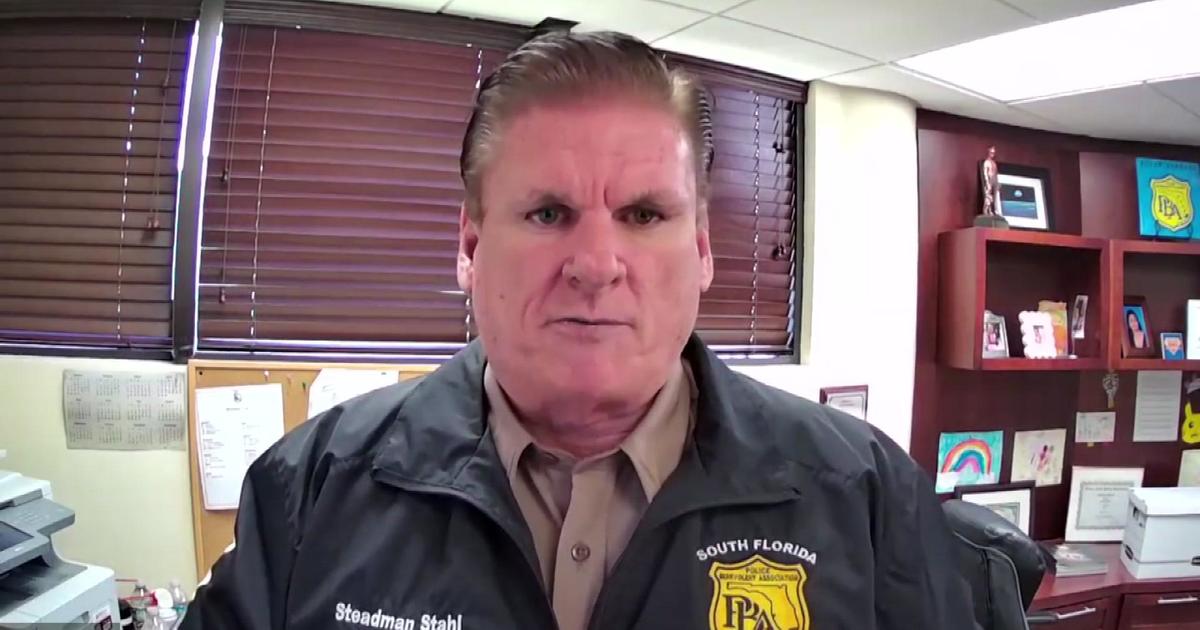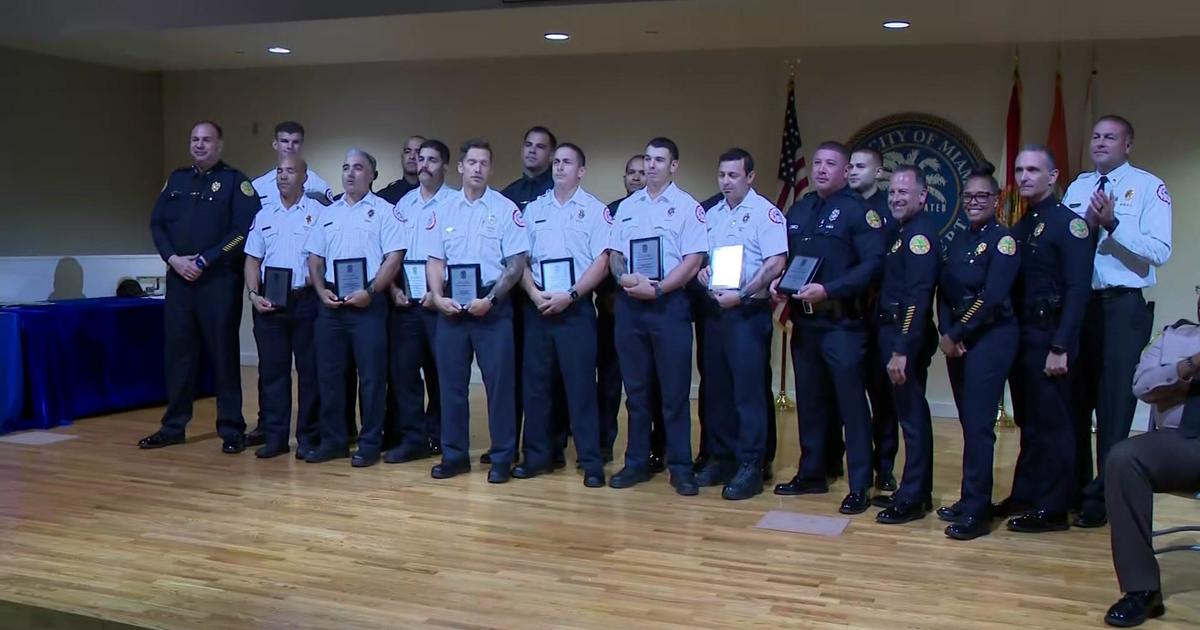Diving Daredevils Plunge Deep For Thrills
MIAMI (CBS4) - "I'm the best looking of all these guys. You know that right?" joked Captain Carl Starling.
When you think of extreme sports you probably don't think of senior citizens doing it.
"We are talking about 91 feet right now," said the 67-year old Starling, who is still pushing his limits underwater. "I've been spear fishing longer than they are old!"
He's hard to miss… between his white hair… and all that noise.
Said Juan Comendeiro, Starling's diving buddy, "I've never dealt with someone who makes as much noise underwater as Carl does."
"I'm trying to warn the fish about you!" exclaimed Starling.
Recently CBS4's David Sutta spent time with Carl and members of the South Florida Free Divers Club…. everyday people… doing extreme things.
"Most of us have learned how to go past that point where your brain is telling you to breathe and you get that pain, we can actually succumb that," explained Comendeiro.
With training, free divers master the art of spending minutes, not seconds, diving 20 to even 100 feet below the surface... on just one breath of air.
"I think everybody does what they do for a reason. I've been doing it since I was 5-years old."
The biggest draw for most is to hunt fish. You could compare it to being inside the seafood tank at the grocery store… only these guys shoot and sometimes wrestle fish almost as big as them.
"When you go down, you feel like you're on your own, you're part of the environment, and you're doing it with your own capacity, with your own lung capacity."
One of the biggest differences between scuba divers and free divers is bottom time. I can only stay down here for a couple of hours a day safely. Holding your breath though, as free divers do, allows them to dive all day long.
And that may be the biggest danger the sport faces... themselves.
"If you mess up, it can cost somebody their life," Dobal told Sutta.
Free divers actually shut down the sensation you have to breathe. they can literally run out of oxygen... as Manny Dobal did a few years ago.
"I was drowning. I was literally drowning. My friend pulled me out of the water" admitted Dobal.
He experienced what is called a shallow water blackout. He was actually sucking water in and knew it. But his oxygen deprived brain no longer controlled his body.
"I'm one of the lucky ones, most people, you never see them again. In the water you can't yell for help. You go down and they never see you and they never find you again," admitted Dobal.
Brought back from the brink of death... he remarkably is back in the water.
"Race car drivers crash and they still get back in the car, my wife crashes and she still drives my kids around," said Dobal.
By now you are probably wondering.. why won't these guys just strap on scuba tanks?
"Anyone can do that!" said Manny.
"We call that cheating!" added Juan: "That's just a lot of work."
As free divers Raul Boesel and Felix Leander explained, it all has to do with the bubbles from scuba tanks.
"When you're in the water, and you're not with any gear, scuba, you're not making any noise, you really become much more part of the environment and everything around you becomes much more accepting," Leander told Sutta.
This is what accepting looks like. Raul and Felix are a free diving team, capturing rare up-close moments with some of the most dangerous creatures on earth.
"We waited four or five days... waiting, waiting, waiting. Until finally the first tiger shark showed up, they are extremely, extremely smart. So we would have to trick them into getting shots, to getting the photo and by doing that we'd turn our back to them." said Raul Boesel Jr.
Turning your back on 11-foot tiger sharks apparently encourages the shark to quote - "sneak up on you."
"You just watch each other's backs, and again you communicate, you understand each other, we got our six," explained Leander. "Are you a married man?" Sutta asked. "Yes I am and I have a baby." "What's the wife think about this?" Sutta wondered. "She knew what she was getting into," Leander insisted.
These two aspiring artists are hoping through their extreme sport can help change public opinion of the ocean's top predator.... one breath at a time.
"I think we sort of have a bigger purpose now, in meeting and we'd like to do more and yeah, it's the misconception and we're just sharing the beauty of it," Leander pointed out.
With the advent of YouTube, and the economics of diving without a bunch of gear, the sport of free diving is become increasingly popular. The number of deaths from shallow water blackout are increasing as well. Many of them occurring right here in Florida. Join us next week as we look at the disturbing numbers and what's being done to save lives.



